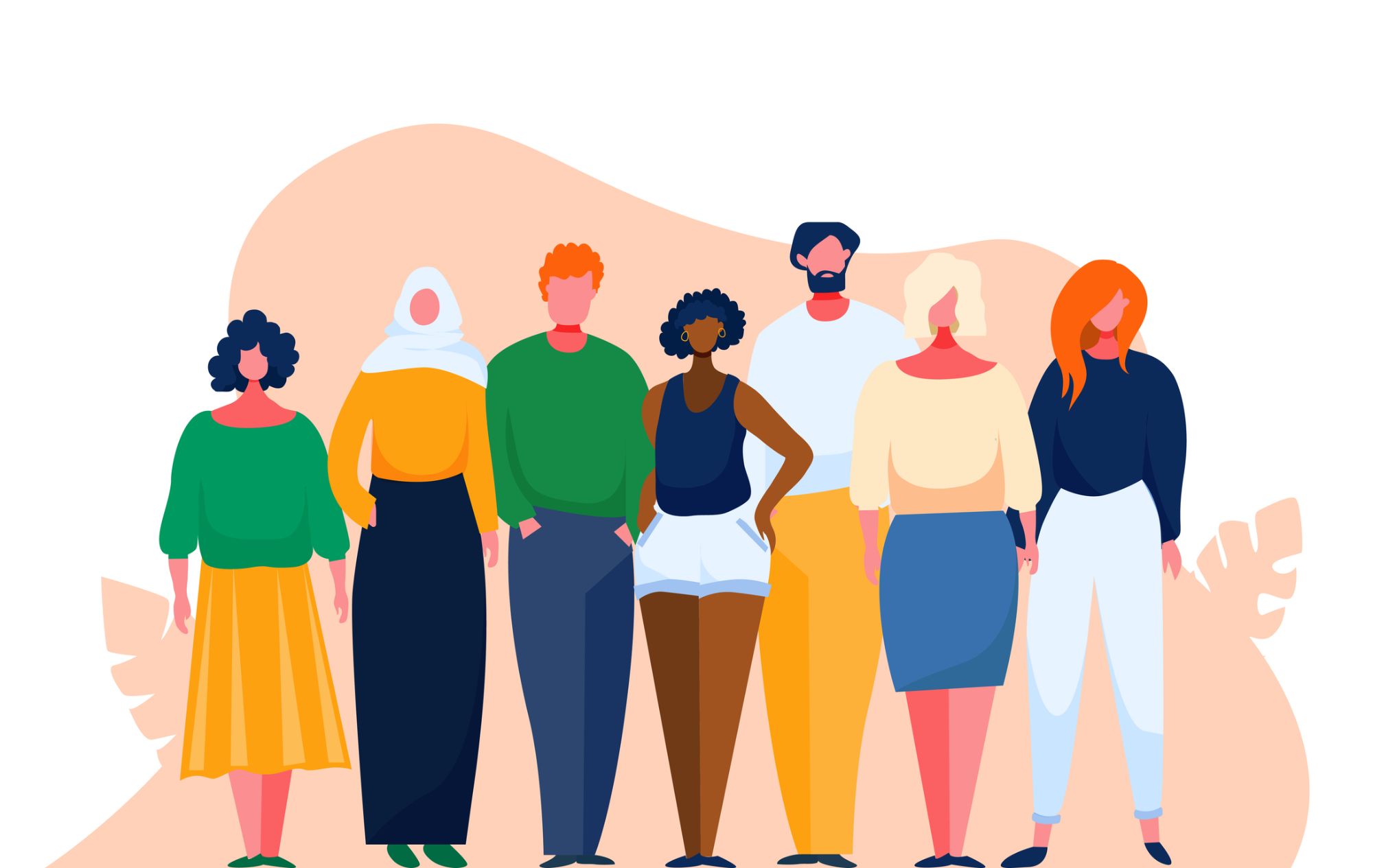The Importance of equality, diversity, and inclusion in dietetics

Healthcare is always changing, and making sure we treat everyone equally, fairly, and with respect is more important than ever. In dietetics across the UK — whether in England, Northern Ireland, Scotland or Wales — putting equality, diversity, and inclusion (EDI) at the heart of what we do isn’t just the right thing ethically, it’s also part of meeting professional standards set by the Health and Care Professions Council (HCPC). It helps us give care that truly focuses on each person’s needs. As a future dietitian, your dedication to being inclusive will be key to making sure nutritional care is delivered with understanding, fairness, and real impact for people from all backgrounds.
Equality in nutritional care
Equality means treating everyone fairly. Equity helps us get there by understanding that people have different starting points in life. So, we need to look at each person’s situation and give them the right support to make sure they can access the care they need.
In the UK, our population is very diverse — people come from different backgrounds, cultures, income levels, and have different health needs. Even though we aim to treat everyone equally and fairly, some groups still face health challenges more than others. This includes people from certain ethnic backgrounds, the LGBTQ+ community, and those with disabilities.
To fix this, we need to actively remove the barriers that stop people from getting fair access to healthcare. That means noticing unfair systems, pushing for better policies, and adjusting services to meet the needs of those who are often left out. For example, when giving dietary advice to someone with a learning disability, we might need to allow extra time for their appointment and use clear, easy-to-understand materials like ‘easy read’ leaflets.
Diversity, reflecting the communities we serve
It’s really important that dietitians reflect the people they care for. But diversity in dietetics isn’t just about having a mix of backgrounds within the profession — it’s also about recognising and celebrating the value that different experiences bring to the job. When the team is diverse, it can better understand and respond to people’s cultural, religious, and personal food choices.
Research shows that diverse teams are often more creative and better at solving problems. That’s because they bring different viewpoints, which leads to deeper thinking and more open discussions, rather than everyone just agreeing without question because they have similar perspectives and experiences.
Inclusion, creating safe and empowering spaces
Inclusion means making sure everyone feels welcome, respected, and valued. In dietetics, this means creating spaces where patients feel safe to talk about their needs, and where dietitians feel comfortable being themselves at work.
Being inclusive means being kind, using respectful language, recognising people’s gender identities, and being aware of mental health issues and neurodivergence, and how they may impact individuals. It’s important to think about how you can make your workplace better for everyone. Inclusion also matters in career growth. Dietitians from underrepresented backgrounds should have the same chances to move up, lead, and be recognised. When workplaces are inclusive, people feel happier, less stressed, and work better together — which leads to better care for patients.
Moving forward: a call to action
The British Dietetic Association (BDA) understands how important it is to make dietetics more diverse. They’re doing a lot to support this, but it’s up to all of us to live out the values of inclusion every day. Take time to explore their website, especially the Diversifying Dietetics webinar series—it’s a great place to start.
EDI (Equality, Diversity, and Inclusion) should be part of every dietetic course, but learning about it doesn’t stop when you graduate. Keep your knowledge up to date as you move through your training and career.
Make an effort to learn about people whose histories, backgrounds, and experiences are different from yours. There are plenty of documentaries, podcasts, and online resources that can help you understand more.
Work together with the communities you serve. By co-creating services and resources with them, you’ll make sure your care is culturally appropriate and truly meets their needs.
Take responsibility. Real change needs proper systemic change — like regular service reviews and audits, ways for people to give feedback that’s actually listened to, fair hiring practices, and transparent reporting practices.
EDI isn’t just a box to tick — it’s an ongoing journey of learning, reflection, and action. When dietitians in the UK embrace these values, they’re not just giving good care — they’re helping build a fairer and more inclusive healthcare system.

Sian has worked in a range of areas including clinical practice (specialising in nutrition support, palliative care and learning disabilities), higher education and for the British Dietetic Association.

Comments